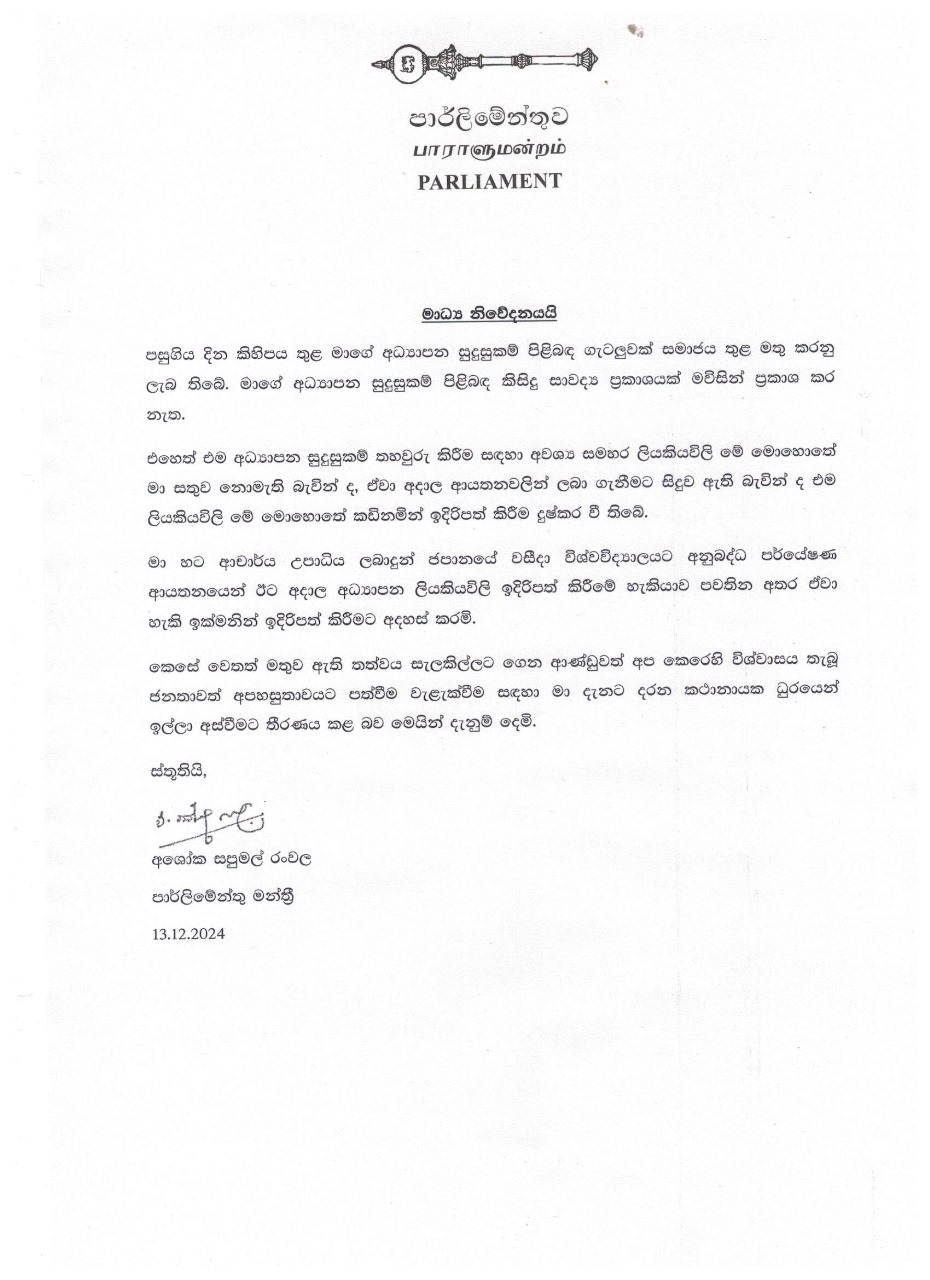Breaking News: Asoka Ranwala resigns as Sri Lanka’s Speaker of Parliament amid academic qualification controversy. Read the full story.
Introduction
In a dramatic turn of events, Asoka Ranwala, Speaker of Sri Lanka’s Parliament, has stepped down from his position. The resignation comes amid allegations about discrepancies in his academic qualifications, which have sparked widespread criticism and public outrage. The announcement has added a new layer of political turbulence to an already fragile governance landscape in Sri Lanka.
The Background of Asoka Ranwala
Asoka Ranwala has been a prominent figure in Sri Lankan politics. Rising through the ranks, his leadership skills and eloquence earned him the prestigious position of Speaker of Parliament. However, his career faced a serious setback when questions about his academic qualifications surfaced.
Allegations Against Ranwala
The controversy began when it was alleged that Ranwala falsely claimed to hold a doctorate from Waseda University in Japan. The Samagi Jana Balawegaya (SJB) party spearheaded the accusations, stating that Ranwala misled the public and government. The SJB also pointed out inconsistencies in his claim of holding a BSc in Chemical Engineering from the University of Moratuwa.
Ranwala’s Statement
In response to the allegations, Ranwala issued a public statement denying any false claims. He clarified that while his qualifications are genuine, he currently lacks the necessary documents to verify them. He promised to procure the documents from Waseda University to clear his name.
SJB’s No-Confidence Motion
The SJB quickly moved to file a no-confidence motion against Ranwala. The motion, signed by several prominent MPs, accused him of violating parliamentary codes of conduct and eroding public trust. This move intensified political tensions within the government.
Impact on Sri Lankan Politics
The resignation of a Speaker under such circumstances is unprecedented in Sri Lanka. This incident has shaken public confidence in the political system and raised questions about the vetting process for high-ranking officials.
Ethical Concerns in Leadership
Ranwala’s case underscores the importance of ethical behavior and transparency in leadership. Leaders are expected to uphold the highest standards of integrity, and any deviation can have far-reaching consequences.
Public Reaction
Public sentiment has been divided. While some commend Ranwala for stepping down, others criticize the delay in addressing the allegations. Social media platforms have been abuzz with debates about the ethical standards of politicians.
The Role of Waseda University
Waseda University’s involvement in this controversy highlights the need for reliable verification processes. Educational institutions play a crucial role in ensuring the credibility of their alumni.
Implications for Parliament
Ranwala’s resignation has left a void in Parliament, potentially leading to shifts in political alliances. It also brings attention to the need for stricter rules governing parliamentary conduct.
The Road Ahead for the Government
The government faces the challenge of restoring public trust while ensuring that similar incidents do not recur. Implementing robust verification processes and promoting transparency will be crucial.
Comparative Analysis
Cases of academic fraud are not unique to Sri Lanka. Globally, several politicians have faced similar controversies, offering valuable lessons for Sri Lanka to address this issue.
The Opposition’s Stance
The opposition has used this incident to criticize the government’s lack of oversight. This controversy may serve as a rallying point for opposition parties in future elections.
Legal Ramifications
Ranwala’s case could lead to legal investigations. If found guilty of ethical violations, he may face penalties under parliamentary codes or criminal charges for misrepresentation.
Conclusion
Asoka Ranwala’s resignation marks a significant moment in Sri Lankan politics. It serves as a reminder of the importance of accountability and transparency in leadership. Moving forward, the government must prioritize ethical governance to regain public trust.

FAQs
- Why did Asoka Ranwala resign?
He resigned following allegations about discrepancies in his academic qualifications. - What were the allegations against Ranwala?
He was accused of falsely claiming to hold a doctorate from Waseda University. - What is the significance of this resignation?
It highlights the need for transparency and ethical behavior in politics. - How did the public react to this controversy?
Public reactions were mixed, with debates focusing on the ethical standards of politicians. - What steps can the government take to prevent similar issues?
Implementing strict verification processes and promoting transparency are essential measures.